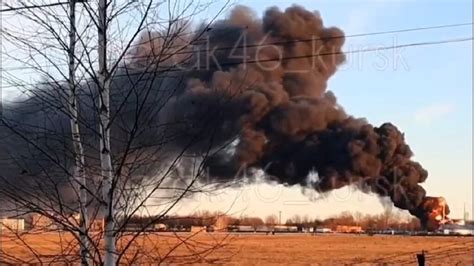
A major recall has been issued by Yamaha affecting approximately 100,000 motorcycles due to a potential safety defect that could lead to crashes. The recall, announced recently, targets specific models manufactured between 2015 and 2024, citing an issue with the fuel pump impeller that can swell and potentially cause the engine to stall, increasing the risk of an accident.
Yamaha has initiated a voluntary recall of specific motorcycle models following the discovery of a defect in the fuel pump impeller. The recall impacts a substantial number of units across various models manufactured over the past nine years. Owners are urged to take immediate action by scheduling free repairs at authorized Yamaha dealers to mitigate the risks associated with the identified safety concern. The recall underscores the importance of ongoing safety monitoring and quality control within the motorcycle industry.
The safety recall centers around the fuel pump impeller, a critical component responsible for delivering fuel to the engine. According to Yamaha, the impeller, made of resin, may absorb excessive fuel and swell over time. This swelling can cause the impeller to interfere with the fuel pump body, potentially leading to pump failure and subsequent engine stalling. Engine stalling, particularly at high speeds or in critical traffic situations, dramatically increases the risk of a collision.
“The impeller may swell, causing the fuel pump to become inoperative, possibly resulting in an engine stall,” Yamaha stated in its official recall notice.
The recall affects a wide range of popular Yamaha motorcycle models, including but not limited to: YZF-R3, MT-03, YZF-R25, and various scooter models. The specific models and production years included in the recall are listed on the National Highway Traffic Safety Administration (NHTSA) website and Yamaha’s official website. Owners are strongly encouraged to check their Vehicle Identification Number (VIN) against the list to determine if their motorcycle is affected.
Yamaha has stated that owners of affected motorcycles will be notified directly by mail with instructions on how to proceed. The notification will include information on scheduling a free repair at an authorized Yamaha dealer. The repair involves replacing the faulty fuel pump with an updated version designed to prevent impeller swelling. Yamaha has emphasized that the repair will be performed at no cost to the owner.
“Yamaha is committed to ensuring the safety and reliability of its products,” the company stated. “We are working diligently to address this issue and minimize any inconvenience to our customers.”
The announcement of this widespread recall has prompted concerns among motorcycle safety advocates, who emphasize the critical importance of prompt repairs. They have called on Yamaha to ensure that replacement parts are readily available and that dealers are prepared to handle the anticipated influx of repair requests. Additionally, they are urging owners to take the recall seriously and schedule repairs as soon as possible.
This recall highlights the complex challenges faced by motorcycle manufacturers in maintaining quality control and ensuring the safety of their products. Factors such as supply chain disruptions, material variations, and evolving regulatory standards can contribute to potential defects. Robust testing, proactive monitoring, and transparent communication are essential for mitigating risks and protecting riders.
The recall serves as a reminder to all motorcycle owners to stay informed about potential safety issues and to promptly address any recall notices they receive. Regular maintenance, adherence to manufacturer’s recommendations, and responsible riding practices are crucial for ensuring a safe and enjoyable riding experience.
The NHTSA is actively monitoring the Yamaha recall and will provide updates as needed. Motorcycle owners can also access additional information and resources on the NHTSA website, including recall search tools and safety tips.
In addition to the immediate safety implications, the recall could potentially impact Yamaha’s brand reputation and financial performance. The cost of the recall, including replacement parts, labor, and administrative expenses, could be substantial. Furthermore, the negative publicity associated with the recall could erode consumer confidence and affect future sales. Yamaha will need to effectively manage the recall process and demonstrate a strong commitment to customer safety to mitigate these potential impacts.
The fuel pump impeller issue underscores the importance of material selection and compatibility in automotive engineering. The interaction between the resin material of the impeller and the fuel composition can have significant implications for component durability and performance. Manufacturers must carefully consider these factors during the design and testing phases to prevent potential failures.
The impact extends beyond Yamaha as well. This type of extensive recall can have implications on the broader motorcycle industry, prompting other manufacturers to review their own quality control processes and supply chains. It emphasizes the need for a collaborative approach to safety, where manufacturers, suppliers, and regulatory agencies work together to identify and address potential risks.
The incident serves as a crucial reminder for all riders to meticulously adhere to maintenance schedules. Regular checks, as stipulated by the manufacturer, can often preempt potential issues, preventing them from escalating into major safety hazards. This proactive approach is an integral component of responsible motorcycle ownership and contributes significantly to overall road safety.
Moreover, the Yamaha recall underscores the escalating complexity of motorcycle technology. Modern motorcycles are equipped with sophisticated electronic systems and intricate components. This technological sophistication necessitates rigorous testing protocols and meticulous quality control measures to ensure that all parts function cohesively and reliably. As technology advances, manufacturers must remain vigilant in their efforts to maintain the highest standards of safety and performance.
The long-term ramifications of this extensive recall could include stricter regulatory oversight of motorcycle manufacturing processes. Government agencies may implement more stringent testing requirements and impose greater penalties for safety violations. This increased scrutiny could lead to higher manufacturing costs and longer lead times for new motorcycle models.
Yamaha is taking steps to address concerns. It has pledged transparency throughout the recall process, providing clear and consistent communication to its customers. The company is also working closely with its dealer network to ensure that repairs are performed efficiently and effectively. By demonstrating a proactive and responsible approach, Yamaha hopes to minimize the negative impacts of the recall and restore consumer confidence.
The company is urging owners of potentially affected bikes to not delay in getting their bikes checked. According to the manufacturer, the longer the affected part remains in use, the higher the risk of failure. The company hopes that by addressing the issue head-on, it can prevent future incidents and uphold its commitment to customer safety. The fuel pump replacement is a relatively straightforward procedure that can typically be completed within a few hours.
Experts recommend that owners should always keep detailed maintenance records for their motorcycles. These records can be valuable in the event of a recall or warranty claim. They also provide a comprehensive history of the motorcycle’s service and repair, which can be helpful for future maintenance and troubleshooting.
The Yamaha recall also highlights the importance of VIN lookup tools. These tools allow owners to quickly and easily determine if their motorcycle is subject to a recall. VIN lookup tools are available on the NHTSA website and on most manufacturer’s websites. Motorcycle owners should regularly check their VIN to stay informed about potential safety issues.
While the financial burden on Yamaha is expected to be significant, the cost of neglecting this issue would be far greater. Failure to address the fuel pump problem could result in serious injuries or even fatalities. By taking decisive action, Yamaha is prioritizing the safety of its customers and upholding its ethical responsibility.
The recall underscores the interconnectedness of the global automotive supply chain. The fuel pump impeller is likely manufactured by a third-party supplier, highlighting the importance of rigorous quality control throughout the entire supply chain. Manufacturers must carefully vet their suppliers and implement robust testing procedures to ensure that all components meet the highest standards of safety and reliability.
Furthermore, the Yamaha recall emphasizes the critical role of data analysis in identifying potential safety issues. By analyzing warranty claims, customer complaints, and field reports, manufacturers can detect patterns and trends that may indicate a developing problem. Early detection allows manufacturers to take proactive measures to prevent widespread failures and protect their customers.
The Yamaha recall also raises questions about the long-term durability of modern motorcycle components. As motorcycles become more complex and technologically advanced, manufacturers must ensure that their components are designed to withstand the rigors of everyday use. This requires careful consideration of material selection, manufacturing processes, and environmental factors.
In response to the recall, many Yamaha dealerships are extending their service hours and adding additional staff to handle the increased demand for repairs. Dealerships are also offering loaner motorcycles to customers who need transportation while their bikes are being repaired. Yamaha is working closely with its dealer network to ensure that the recall process is as smooth and efficient as possible.
The Yamaha recall serves as a valuable lesson for the entire motorcycle industry. It highlights the importance of proactive safety measures, transparent communication, and a strong commitment to customer satisfaction. By learning from this experience, manufacturers can improve their quality control processes, enhance their safety protocols, and build stronger relationships with their customers.
This incident also throws light on the necessity of comprehensive pre-market testing. Thorough testing under diverse conditions can help uncover potential flaws before the motorcycles reach the consumer market, reducing the likelihood of large-scale recalls.
The Yamaha recall has prompted a renewed focus on motorcycle safety education. Motorcycle safety organizations are urging riders to take refresher courses and to practice defensive riding techniques. These courses can help riders improve their skills and knowledge, reducing their risk of accidents.
Also, the recall brings into focus the importance of regular safety inspections. Many states require motorcycles to undergo periodic safety inspections to ensure that they are in good working order. These inspections can help identify potential problems before they become serious safety hazards.
Yamaha’s handling of this recall will be closely scrutinized by industry observers. A transparent and efficient recall process will help to maintain customer trust and minimize damage to the company’s reputation. Conversely, a poorly managed recall could have serious consequences for Yamaha’s brand image and financial performance.
The Yamaha recall is a significant event that will have far-reaching implications for the motorcycle industry. It underscores the importance of safety, quality control, and customer satisfaction. By learning from this experience, manufacturers can improve their products, enhance their processes, and build a safer riding environment for all.
The affected models span a significant range within Yamaha’s lineup, indicating a potential commonality in component sourcing or manufacturing processes. A thorough investigation into the root cause of the impeller issue is crucial to prevent similar problems from recurring in future models.
Furthermore, this recall has spurred discussions about the environmental impact of resin materials used in motorcycle components. The long-term sustainability of these materials is a growing concern, and manufacturers are increasingly exploring alternative materials with a lower environmental footprint.
Owners of affected motorcycles should prioritize scheduling their fuel pump replacement as soon as possible. Delaying the repair could increase the risk of engine stalling and potential accidents. Yamaha is committed to providing a seamless and efficient repair process, and owners should take advantage of this opportunity to ensure their safety.
The recall emphasizes the importance of staying connected with the motorcycle community. Online forums, social media groups, and local riding clubs can provide valuable information and support to owners during a recall. These communities can also help to share experiences and provide practical tips for dealing with recall-related issues.
In light of the Yamaha recall, motorcycle safety experts are recommending that riders conduct pre-ride inspections of their motorcycles. These inspections should include checking the fuel level, tire pressure, brakes, lights, and other critical components. By conducting regular pre-ride inspections, riders can identify potential problems before they become serious safety hazards.
The Yamaha recall also underscores the importance of having adequate motorcycle insurance coverage. Motorcycle insurance can provide financial protection in the event of an accident, including coverage for medical expenses, property damage, and legal fees. Riders should ensure that they have sufficient insurance coverage to protect themselves and their assets.
As Yamaha works to address the fuel pump impeller issue, the company is also investing in research and development to improve the durability and reliability of its motorcycles. This investment will help to ensure that future Yamaha models meet the highest standards of safety and performance.
The Yamaha recall is a reminder that motorcycle ownership comes with certain responsibilities. Owners should be proactive in maintaining their motorcycles, staying informed about potential safety issues, and taking prompt action to address any recall notices they receive.
In addition, the recall has highlighted the importance of clear and concise communication between manufacturers and consumers. Yamaha is working to provide owners with all the information they need to understand the recall and to schedule their repairs. Clear communication is essential for building trust and ensuring that owners take the necessary steps to protect their safety.
The recall also serves as a catalyst for innovation within the motorcycle industry. Manufacturers are constantly seeking new ways to improve the safety, performance, and reliability of their motorcycles. The Yamaha recall will likely spur further innovation in fuel pump design and manufacturing processes.
The Yamaha recall is a complex issue with far-reaching implications. By understanding the details of the recall, the potential risks involved, and the steps that Yamaha is taking to address the issue, owners can make informed decisions and protect their safety.
The widespread nature of the recall underscores the importance of global collaboration in addressing safety concerns. Manufacturers, suppliers, and regulatory agencies must work together to share information and coordinate efforts to ensure the safety of motorcycles worldwide.
Furthermore, the recall has highlighted the need for greater transparency in the motorcycle industry. Manufacturers should be more transparent about potential safety issues and should provide consumers with clear and accurate information about recall notices.
The Yamaha recall is a challenging situation, but it also presents an opportunity for the company to demonstrate its commitment to safety and customer satisfaction. By handling the recall effectively, Yamaha can strengthen its brand image and build stronger relationships with its customers.
Frequently Asked Questions (FAQ)
1. What is the Yamaha motorcycle recall about?
The Yamaha motorcycle recall involves approximately 100,000 motorcycles due to a potential defect in the fuel pump impeller. “The impeller may swell, causing the fuel pump to become inoperative, possibly resulting in an engine stall,” according to Yamaha’s official recall notice. This engine stalling could increase the risk of accidents. The issue affects specific models manufactured between 2015 and 2024.
2. Which Yamaha motorcycle models are affected by the recall?
The recall affects a wide range of popular Yamaha motorcycle models, including but not limited to: YZF-R3, MT-03, YZF-R25, and various scooter models. Owners are advised to check the NHTSA website or Yamaha’s official website and compare their Vehicle Identification Number (VIN) against the listed affected models and production years.
3. What should I do if my Yamaha motorcycle is affected by the recall?
If your motorcycle is affected, Yamaha will notify you directly by mail with instructions on how to proceed. You should schedule a free repair at an authorized Yamaha dealer as soon as possible. The repair involves replacing the faulty fuel pump with an updated version designed to prevent impeller swelling. This repair will be performed at no cost to the owner. Do not delay, as the risk of failure increases with continued use of the affected part.
4. Will I have to pay for the repair if my motorcycle is part of the recall?
No, the repair will be performed at no cost to the owner. Yamaha is covering the cost of the replacement parts and labor associated with the recall. The company stated, “Yamaha is committed to ensuring the safety and reliability of its products,” and is working to minimize any inconvenience to its customers.
5. Where can I find more information about the Yamaha motorcycle recall?
You can find more information about the recall on the National Highway Traffic Safety Administration (NHTSA) website (www.nhtsa.gov) and Yamaha’s official website (www.yamaha-motor.com). You can also contact your local Yamaha dealer for assistance. Ensure to have your VIN readily available when inquiring about the recall.









